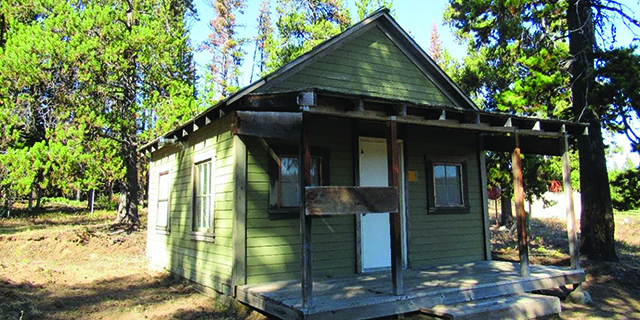Precautions can prevent food poisoning
Published 11:41 am Tuesday, August 14, 2018
Picnics and barbecues are in full swing and part of the fun of summer. In addition to keeping the ants and other pests away, there is one more thing to consider during the hot summer months where food is concerned.
Food safety is just as important, maybe more so, to a summer outing as mom’s potato salad.
Trending
According to the Centers for Disease Control and Prevention, approximately 48 million people annually get sick due to food-borne illnesses. Of those, 128,000 will require hospitalization and 3,000 will die from the illness.
Food-borne illnesses, also known by other names such as food poisoning and salmonella, sicken people each year. There are some populations — seniors, children and pregnant women or those with a compromised immune system — that are more susceptible to food-borne illnesses than others.
Following a few common sense rules will ensure a safe, illness-free time for everyone at your next summer outing.
Remember to clean, separate, cook and chill. Handwashing is very important for everyone not just the cook. Hands should be washed with warm, soapy water for 30 seconds prior to handling food.
After handling raw meat, hands should be washed again. Avoid cross contamination, by keeping raw foods such as meat, separate from other foods such as fruits and vegetables. Cross contamination occurs when the same cutting boards and utensils are used with raw meat and then used to cut fruits or vegetables.
Bacteria from the meat is easily transferred to the other foods, contaminating them. Once cooked, hamburgers or other meats should not be placed on the original plate used before cooking. A new plate must be used for the cooked product.
Trending
Proper cooking destroys bacteria, which can cause food-borne illnesses. Cook ground beef to an internal temperature of 160 degrees F., steaks and other meats to at least 145 degrees F. and poultry to 165 degrees F. Use an internal thermometer to check for doneness.
Once cooked, meat should be eaten immediately or kept above 140 degrees F. Foods should not be kept out for more than two hours without refrigeration. On very hot days, the time limit is no more than an hour.
It is not possible to tell if a food is safe simply by tasting, smelling or looking at it. When in doubt about how food has been prepared, cooked or stored, it is best to throw it out. It is better to be safe than risk getting sick.
Prevention is key to avoiding food-borne illnesses. A good rule of thumb around food safety is to keep hot foods hot (this means above 140 degrees F.) and cold foods cold (below 40 degrees F.).
The danger zone is between 140 and 40 degrees, the temperatures when bacteria can multiple rapidly causing unsafe food. Foods often connected with food-borne illnesses are meat, eggs and foods containing dairy products.
Raw meats should be kept on ice in a cooler until ready to cook. The same goes for foods such as potato salad (which may contain eggs) and desserts containing dairy products such as cream.
Symptoms of food-borne illness include diarrhea, nausea, vomiting and stomach cramps. Fever, chills and fatigue may also be present. The symptoms usually show up between 12 and 72 hours after consuming, but could manifest themselves sooner or even a week later.
Symptoms generally last a day or so. Hospitalization is rare, but can be needed if the illness hits someone from a susceptible population and their condition does not improve. In this case, medical personnel should be consulted.
Treatment for food poisoning includes eating bland food such as crackers or toast, rice or bananas, and rest, according to John Pandolfino, M.D, chief of gastroenterology and hepatology at Northwestern Memorial Hospital in Chicago.
Dehydration is a concern with food poisoning, so hydration is important. Water or sports drinks without caffeine are good choices, he said. Pandolfino recently contributed to an article at menshealth.com.
A fun summer food outing needn’t end in illness if precautions are taken. Celebrate the official end of summer with a happy and safe Labor Day picnic.
Ann Bloom is a nutrition program assistant for the OSU Extension Service in Wallowa County.









